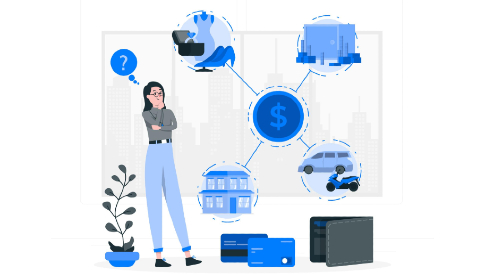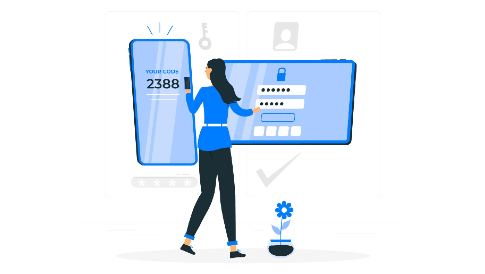Ecommerce Tax Rules, Sales Law and Legal Requirements
You start with an online store idea, make your business plan, and start selling products. The prerequisite is to create an ecommerce website people will buy from and a great SEO strategy that will boost your sales. That is the dream – an ecommerce website that follows all popular ecommerce practices and invites people to just buy and buy! But, that’s just one part of it. Doing all this is time-consuming and rather challenging. When you are done, you may feel like you have it all figured out, but there is one grand thing many forget at the beginning – ecommerce tax rules, and regulations.
Not being informed on the ecommerce tax rules and regulations can affect your store at any time. It can stop you from opening it, bring on unexpected, unbearable expenses when you start selling or make it impossible for you to continue with your ecommerce business. But, they are here for a reason and are definitely here to stay.
That being said, getting informed on the ecommerce tax rules before you start off your online business can save you money, time, and energy in the long run. Surely, the ecommerce sales tax varies from one country to another, but finding them out is the smartest idea in every situation. And once you know it, you can avoid all those issues that add up costs to your decision to sell products on the internet.
Ecommerce Tax Rules Explained
In this article, we will provide you with everything you need to know about ecommerce sales taxes rules and how to abide by them.
Tax on Ecommerce
The first thing to pay attention to is the taxes. Every country and state has different standards and rules when it comes to setting taxes. With that in mind, you need to check your target market to understand what the taxes in your country are like.
For example, if the demographics of your store (this is equally important as your location) is in the United States, you need to add prices that are exclusive of tax. But, if your store demographic is in, let’s say, Australia, you sure want to include the tax on ecommerce into your pricing. People there are used to buying products that have an all-inclusive price.
There’s also the matter of what you are selling. There are different taxes for different countries, but also for different products or services. For instance, if you want to sell non-essential goods in Britain, the VAT tax must be applied to all of them. If you want to sell clothes in New York, this is also taxed. However, if you choose Massachusetts to sell clothes, there’s no rule for clothing tax there.
Extra Taxes
Some countries have extra taxes for products you wouldn’t think of checking. For example, in California, any item you decide to sell that comes in a plastic bottle will cost an extra $0.11 recycling tax. Image if you missed out on this information – in addition to the rest of the ecommerce tax rules that apply to sell online in California, there is one more cost that might surprise you.
Ideally, the best thing you can do to be sure about your specific products or services, and the local taxes where you are trying to sell, you can talk to a professional for taxes or the local authority. This will help you understand what can affect your business and take you by surprise, give you an insight into what you need to do when choosing your products’ prices, as well as help you determine your future ecommerce strategies. Such professionals will also aid you with the requirements set by ecommerce tax rules, such as applying for a tax ID, reseller certificates, or tax exemptions.
‘’I found out about the taxes the hard way. I didn’t lose my money because I failed to learn what the taxes are like, but the fact that I didn’t know there is a tax exemption for some of my products made me lose great earnings. Learning about the taxes by hear-say is not a good idea. From that point until now, I get my insights from as many places as I can.’’ – explains Teresa Yang, an expert at brillassignment.co.uk.
Of course, you’d have to be continuously informed of the changes in taxes and regulations. They will change constantly, which is why ecommerce professionals must work with the local tax authority throughout the entire time they are in the business.
Ecommerce Sales Tax Rules Compliance and How to Deal with It
Ecommerce professionals can spend hours trying to find their way with ecommerce sales tax compliance. Following the ecommerce tax rules and regulations isn’t a preference, but a necessity. And it isn’t really fun, either.
Finding out about ecommerce sales tax rules can be a torture for a seller. Sales tax is governed by numerous laws on a state level, and there isn’t specifically a handbook that can help you figure the thing out. So, before you start your business, you must learn how to collect, file and report the sales tax.
Thankfully, we have a short guide of ecommerce sales tax and how to handle the process. But first, let’s define the sales tax.
What is a Sales Tax and Why It Is Necessary
Everyone has a sales tax. Washington D.C and forty-five states in the US have it. In addition to it, some states allow their local areas to demand additional sales tax, too. These taxes are there for a reason. The reason is to pay for budget items such as public safety, roads, or schools. It is also referred to as the ‘consumption tax’ because it is only required when someone finalizes a purchase from your ecommerce store.

Some even call the sales tax a ‘pass-through tax’. The reason behind this is that when the merchant charges a tax to the buyer, they don’t get to keep that tax. It simply passes through and goes in the state’s government budget.
And since it is fully governed at every state level, each individual state can make individual ecommerce tax rules. There are limitations to how far they can go with this, and those limitations are set by the framework of the Constitution.
Some things about the ecommerce sales tax rules can vary depending on the state you are selling in, such as:
- Taxable and non-taxable products and services
- Amount of sales tax charged
- Requirements for frequency for filing sale tax returns
- Due dates for sales tax return
How to Handle the Sales Tax According to Ecommerce Tax Rules
Now that you know all this, it is time to teach you how to handle the sales tax. We’ve created a list of six steps for this purpose, each equally important for the process:
1. Identify the sale tax nexus
Do you know where you are required to collect the taxes? The word nexus means ‘to tie’ in Latin, and in this case – it refers to how you need to tie the business to your state. In the United States, ecommerce retailers are required to have a sales tax nexus, i.e. collect the sale tax from other buyers. This can be created and affected by their location, personnel, inventory, sales, affiliates, etc.
2. Verify if your projects are subject to a sale tax
Not every project is a subject to an ecommerce sales tax. In the United States, the majority of the personal and tangible property is a subject to a sale tax. But, some items that are more of a necessity for people aren’t taxable everywhere. Such items include grocery items, clothing, prescription medicine, some nonprescription medicine, religious books, textbooks, etc. But, you must keep in mind that this can vary from one state to another, so you have to check with your state to see which of your products are not subject to a sale tax.
3. Register for a sales tax permit
As soon as you have determined the nexus and got informed on the products that are taxable in your state, it is time to register for a tax permit. Once again, this will depend on the state, more specifically on the State Department of Revenue.
4. Set up a sale tax collection of your ecommerce businesses
With a valid tax permit and information about the sale tax on all your products, your next step is to figure out the pricing. You now know where to collect your taxes, so the idea here is to start collecting it from your customers. Depending on the marketplace or shopping cart, you can use a variety of methods to set up your sale tax collection.
Remember, you can charge anything from a VAT tax to a shipping or packing tax.
5. Report the sale tax amount
This part will come very soon after you start collecting the taxes from your buyers. There’s always a due date for tax filing, so you better not miss it. Try to keep track of the ecommerce tax rules throughout the sales process to make this much easier for you when the time comes to report the amount.
When it comes to reporting sale tax amounts, some states will have easy filing process. Others will demand the sale tax that is broken down by city, county, or district, which can be a bit more complicated.
6. File the sale tax return
The final step of the sale tax is the returns you can have with the state. Some states let you file the tax online, and there is often a deadline for this, too. So, if you are a subject to a tax return, try not to miss a deadline and if you do, make sure there is a last-minute extension for sale tax filing.
Payment Gateways for Ecommerce Business
Did you know that there are numerous gateways for payment available to ecommerce businesses? Some have ecommerce tax rules and restrictions on the products you have in mind, but this doesn’t mean that you should not be informed of them.
With that in mind, you need to know your limitations for the products you are selling when you start vetting the gateways for payment. You need to check for anti-fraud features, whether the gateways are hosted or not, what are the setup fees or the monthly fees that occur with this.
Restrictions for Shipping
Most companies list the restricted items when it comes to shipping. Some will restrict one item, others will restrict another item. So, if you want to know the sales laws and requirements related to shipping, you need to do your fair share of research.

Restrictions for shipping are usually placed on some of the following items: airbags, ammunition, alcoholic beverage, animals, aerosols, cigarettes, explosives, perfumes, poisons, hazardous materials, perishables, and dry ice.
Not everyone will restrict the shipping of these items, but they will surely require some extra fees and paperwork. This is why many ecommerce marketers choose to add a shipping tax on ecommerce – to cover the additional costs of shipping, as well as follow the customs laws, duties and tax requirements by their state.
Patents, Trademarks, Copyrights
The next in the list of ecommerce tax rules to pay attention to is patents, trademarks, and copyrights. All three are highly important for your ecommerce business, and the misconceptions around them are more numerous than with any of the rules.
These ecommerce tax rules are defined as follows:
- The patent is a property right of limited duration, relating to some invention and granted by the office for patent and trademark in exchange for a public disclosure of the same.
- Trademark is a symbol, a phrase, a word, or a web design that distinguishes or identifies some source of goods from other sources.
- Copyright is the protected authorship or work of a person and can include works of art, writings, and music.
As you can probably assume at this point, whether you apply or not for these is dependent on your choice and your product. In most cases, it is recommended and without it, you can lose your product because you failed to do this. While doing this isn’t necessary, it is definitely wise to do it. Moreover, you need to check if your ecommerce business infringes on other trademarks and patents in the same business. If it does, it can cause you many legal problems.
Inventory
If you have an ecommerce business, you will probably have to hold some inventory. In many cases, ecommerce business owners have substantial inventories they hold on to. This requires continuous check-ins of the lease or the deed, as well as the zoning codes.
What are the zoning codes?
The zoning codes are ecommerce tax rules, prohibitions for running a business from, let’s say, your home. These are some serious laws, which means that you need to be as informed as you can before you start holding your inventory in a chosen location.
If you fail to follow up on this, you might end up paying large fees and breaking the inventory laws. So, get informed on the zoning codes as soon as possible, preferably before opening your ecommerce business. This should give you enough time to learn where you need to store your inventory and how to keep it.
Age Restrictions
You simply can’t launch an ecommerce website without making sure that it complies with age restriction laws. If you haven’t heard of the Children’s Online Privacy Protection Act, you need to learn about it and fast.

The COPPA act has limited number of regulations, but ones that must be followed if you want your business to be legal and running for a long time. The one act that applies to all ecommerce businesses is the inability to collect personal data from children under the age of thirteen. So, if you are planning on selling products to a very young audience, you should definitely make sure that your website abides by these regulations.
As far as the verification part goes for an ecommerce store, there are specific codes that vary from one country to another. For example, if your ecommerce website sells alcohol or vapes, you need to have a set of necessary tools before the checkout part. Otherwise, your products won’t be legally sold, and the tax on ecommerce will become the least of your problems.
Like almost every other rule and law in this list, this varies greatly depending on the country you are in. Different countries have different demands, especially when it comes to restrictions of age on the products that are being sold. So, do your fair share of research to remain on top of the age restriction legislation.
Permits and Licenses
Now this will also depend on your choice of products to sell. For most products, you will need a license to sell them. Sure, it will also depend on the local department for licensing from your country, so make sure to contact them before you go online and start selling.
Look at this as the red tape of your ecommerce business. You simply cannot sell legally unless you have the necessary licenses and permits for your products. If they don’t need ones, sure, you can proceed. But, if they do and you don’t have the permit, you are in for a lot of trouble and will probably lose the business and the investments that came with it.
Insurance for Ecommerce Business
There are plenty of insurance options for a small business, including professional liability, general liability, product liability, commercial liability, and even home-based business insurance. Which one you’ll choose is up to you, but insurance is a definite prerequisite to having a long-term ecommerce business.

When choosing insurance for your business, make sure to check the product liability option. This is a commonly used option among ecommerce businesses because its purpose is to protect those who wholesale, manufacture, retail and distribute products. As such business person yourself, you can often be liable for the product’s safety.
Another thing to look at is the professional liability insurance. This insurance applies to omissions and errors, which will protect your ecommerce business against things like negligence, error, and malpractice.
Ecommerce Tax Rules PCI Compliance
The PCI compliance is a must for online stores. This is obvious from SaaS platforms – they all have it, at least at some degree. If you are planning to get into the online business world, you are at high risk of data theft. This is a matter that must be taken seriously because it can cause great losses for both you and your customers.
It is not all about the checkout safety and experience. There is also the matter of storing the purchasing information, even if it is on a piece of paper or over the phone. Data thieves are everywhere, and there are just hovering on the Web, waiting for you to make a mistake.
Find out what the PCI compliance rules are and get everything covered. There are apps and companies that can help you achieve this, so make sure to protect your buyers from credit card information breaches and theft.
Platform Requirements
Did you know that the Facebook Messenger platform requires from its users to agree to have Facebook serve ads based on what you say, which means that they’d be listening to you while talking to customers? You can now use it to transfer payments, which will surely result in more confidentiality in the near future, but this is definitely not a place to discuss payment details unless you are certain they are completely safe.
Facebook is very popular and known to be really safe, but there are plenty of platforms out there with requirements you must pay close attention to. If you agree to something without giving it a second thought, it will be your mistake, not theirs.
Summing up Ecommerce Tax Rules
If you want your business to be up and running, and exist on the ecommerce market, these laws and rules are essential for its survival. The list above will tell you how to protect yourself, your business, and your customers, which is the most important step toward building a successful ecommerce business.




Leave a Reply